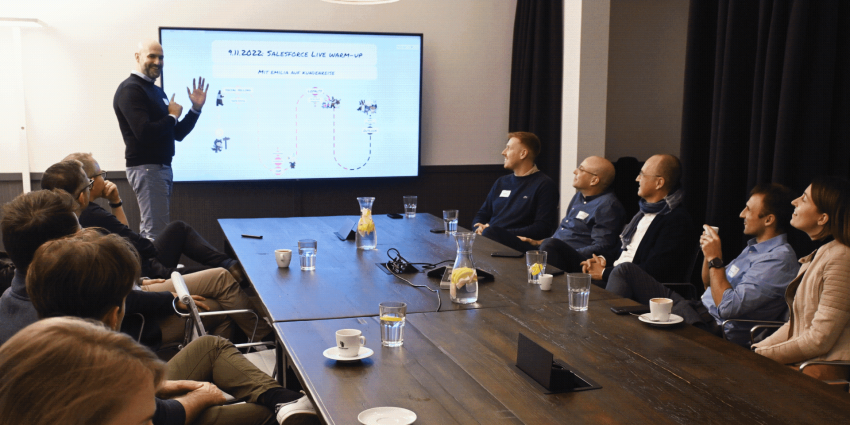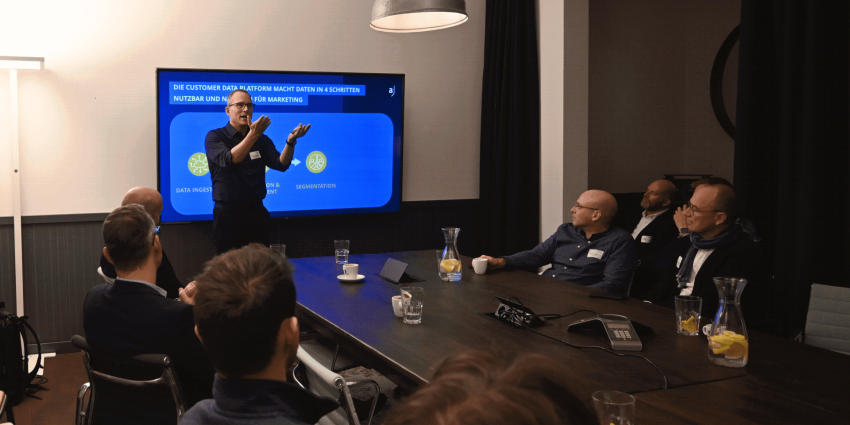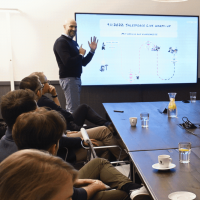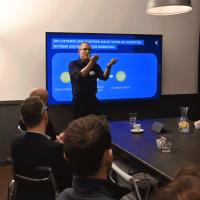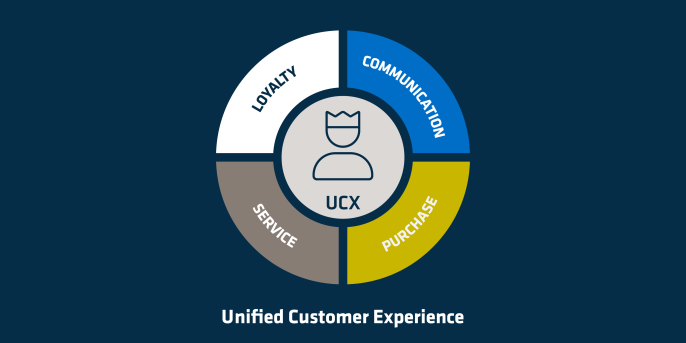Happy and satisfied – this is what a customer should be when their customer journey is a success.
A company has a myriad of tasks to accomplish to achieve this state of mind among its clientele. The basis for doing so is clear: know your customers – just like the owner of an old-fashioned corner shop used to! They knew about all about their customers and were familiar with what was going on their lives and their shopping habits. This enabled the old-fashioned corner shop to set itself apart from other providers.
The principle is still the same today: those who know their clientele’s needs, can serve them on the right channels and do so comprehensively have an edge over the competition. Tailored advice, suggestions based on preferences and intuitive purchasing processes are aspects that contribute to a positive customer experience. Those who continuously develop and optimise such a successful customer experience are able to strengthen their relationship with their customers. For this, understanding what makes a seamless customer journey is at least as important as the right technology for the data-based background work.
We would be happy to give you a personal consultation about all the topics along the customer journey and design a workshop tailored to you.

